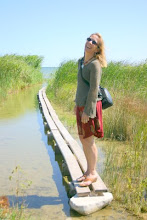
This week, my old friend Glenn Silber came back to town to premiere a brand new documentary, Labor Day, a film of last fall's Obama campaign as seen by the members of the SEIU labor union members. But before we sat down in the Barrymore Theatre to see what we wrought in the great year 2008, we got to indulge ourselves with a look backward at what we did forty years ago here, with a 30th year anniversary screening of Glenn's first major documentary, the Oscar nominated War At Home.
I almost didn't go. A few weeks ago, during the Wisconsin Book Festival, I went to hear the very mini-panel of Bernadine Dohrn and her husband Bill Ayers ostensibly addressing the subject of their newly published book, Race Course Against White Supremacy. Believe me, it wasn't the "catchy" title that lured me in; it was simply idle curiousity, combined with simple idleness on a pleasant evening in October. That event made me feel so uncomfortable with my generation that I wasn't sure I could suffer a second gathering of gray headed liberals. There's just something in me that gets indisputably fidgety when a large lecture hall in an elegant arts center is full of old white people nodding their heads in unison in a discussion about racism. My generation has not only become hyperopic in middle age, we are way too often dismayingly myopic. It is not a good combination if you seek to see anything at all clearly.
But the night of the film showing was a beautiful night, so I clamped a light on my handlebars and set off for the theater. Two hours later, with a fresh copy of the DVD tucked into my bag, I pedalled home. My mind was full. My spirit felt as fresh as a child's. To be spinning my pedals with one pants leg rolled up and my hair bunched in a messy ponytail only made me feel more joyful and young and full of a sense of potential.
To watch The War At Home again was to remember not only that I was some teeny little part of a genuine change in consciousness forty years ago but to realize that my participation in it was both smaller and more important than I ever before realized. I came into this movement late, right before we pulled our troops out of Southeast Asia. The events on the Madison campus that Glenn documented in his first major movie all happened before I came to live here, most of them before I was even in high school, some of them while I was still a scrawny, buck-toothed blonde girl in braids, going door to door in Appleton, Wisconsin handing out literature endorsing Barry Goldwater at my dad's behest. I became involved in the anti-war protests just in time to learn how tear gas burned, just in time to experience the fright and, yes, the thrill of being chased down dark streets on the first wet nights of fall, hiding behind bushes and hoping the lights of the squad cars and riot vans wouldn't find you.
I got to know all of this. It changed my life and my generation uneradicably and radically. And now we are, most of us who shared this experience, old and gray and slow; our bellies sling over our beltlines just a little; our beltlines are a little too high to ever be fashionable again. We are old, and the battle scene has changed to Afghanistan and Iraq and Pakistan. Despite the little group of stalwart souls who stand mutely on street corners in college towns like Madison and Boulder once a week, dressed in black and holding up signs of steady antiwar protest, the movement is over. Wars are now religious rather than political, and we are slow and scared and uncertain, about almost everything except what we did as students at the tail end of the sixties. And I am jubilant riding my bike home tonight because finally I know who I am, finally I know what I believe.
Thirty/forty years ago, my peers and I were justified to protest. What we did was great, and we changed the world at an accelerated rate not usual to the course of history. But I didn't really know what I was doing. I was reacting. Looking for something, really anything, to replace the ruling tenets of my parents' lives. I'd lost my Christianity, and I needed something to believe in, some community that willingly enfolded me just as I was. The movement, and particularly its men, gladly embraced all comers, particularly perhaps young blondes who had successfully endured orthidonture.
What I didn't yet know was that beliefs could be rational and heartfelt and deep. I had been raised as a fundamentalist Protestant and fundamental to this is acceptance without questioning, without knowledge or proof. I made pretty much the perfect follower. But thirty years of life has a way of altering us. I am no longer such a good follower. In fact, I've been accused of being ornery, recalcitrant, and even snobby. I feel strong and calm about my values; they feel as much my own as my shadow, but more substantive.
And I can ride my bike in the middle of the night singing songs without worrying about what anyone will think of me, post blogs without caring how the world regards me. This is who I am. The movement of which I was a small part is a large part of me but not all of me. How nice to live long enough to feel this way.
I am a pacifist. I want everyone to get to live long enough and well enough to get to feel this way. And I ain't gonna study war no more.


































